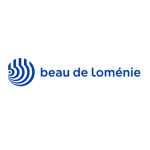Paris will welcome the summer Olympic Games in 2024. This is a huge challenge for the Organising Committee.
The licensing policy of the Olympic Committee of the Olympic signs and symbols is an important aspect of the games and a bill is under discussion in the French Parliament to extend the rights of the National Olympic and Paralympic Committees to the logo, the slogan and the mascot that will be specifically created for the occasion.
These provisions will complete the Sports Code which provides, in Article L.141-5, for the protection of the Olympic signs. As a result, the filing as a trade mark or the reproduction, imitation, affixation, removal or modification of such signs constitutes counterfeiting and is punished as such.
The bill in discussion also provides that terms such as Olympique (Olympic), Olympisme (Olympism), Jeux Olympiques (Olympic Games) and Paris 2024 will be protected. However, this extension has led to criticism and an amendment was proposed to limit the protection to use made with reference to the Olympic Games of the modern age, or to sporting competitions or practice.
Up until now, French jurisdictions have differentiated between using such words in order to inform the public for instance, on a well-known result or to announce a future game, and their exploitation for commercial purposes. Reproduction of a sport result already public and reference to a future competition already announced do not constitute infringment. Trade mark infringement occurs when the use is made for commercial purposes and not for information purposes.
Even if fighting against counterfeits is more important than ever, one assumes that the balance between trade mark rights and freedom of expression and information will nevertheless continue to exist.
Aurélia Marie |
Emmanuelle Machinet |
Cabinet Beau de Loménie
158, rue de l’Université
F - 75340 Paris Cedex 07 France
Tel: +33 1 44 18 89 00
Fax: +33 1 44 18 04 23











